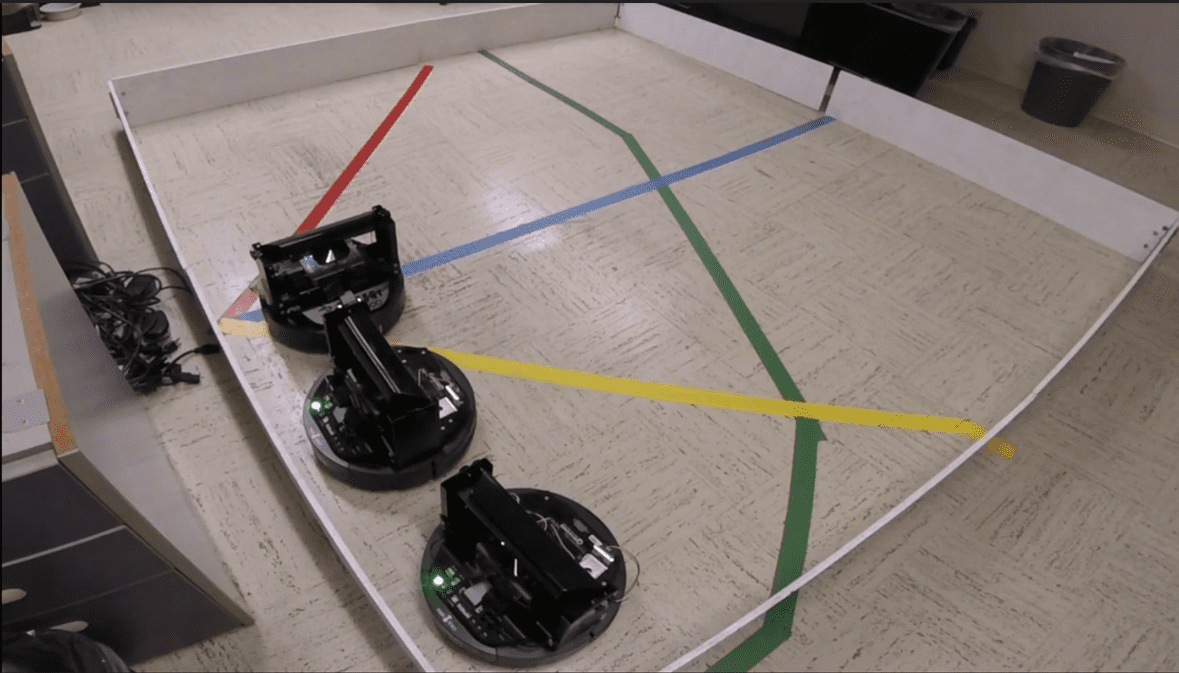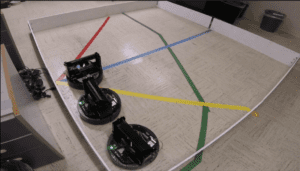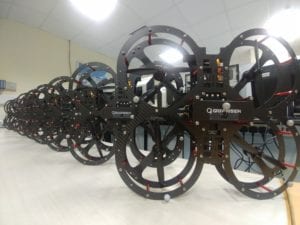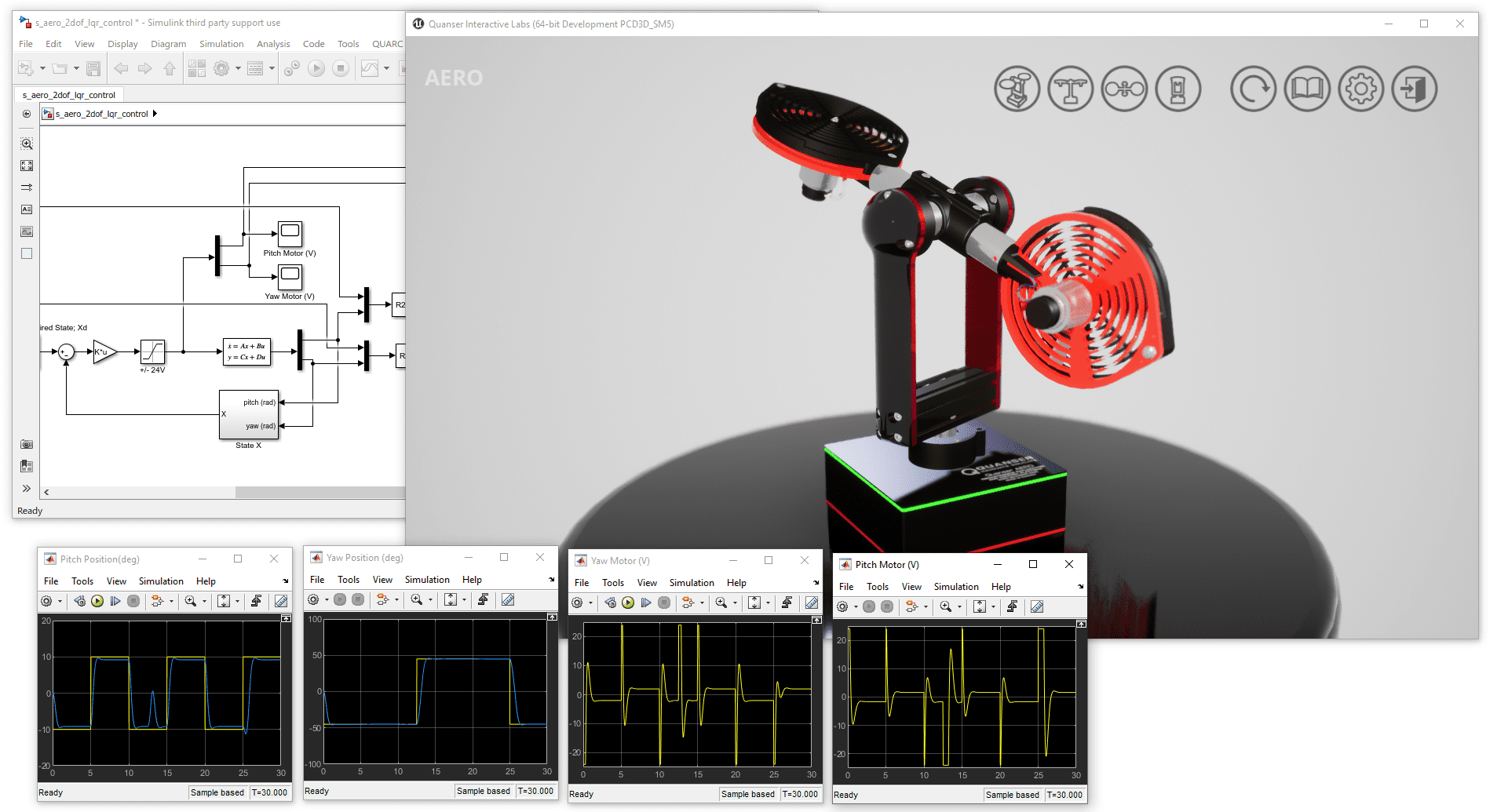
With IoT, AI, machine learning and other highly technical terms entering the mainstream vocabulary, engineering careers become more and more attractive for the new generation. The challenge for the engineering schools and departments now is to motivate these young students early on. They need to help students fully understand WHAT engineers do, HOW they do it, and WHY does it matter.
Over the last couple of years, Quanser worked closely with many institutions that set up to tackle this challenge. Their goal is not only to capture and excite their students for all aspects engineering through hands-on, engaging experiments. They also want to maintain focus on the rigorous understanding of theory and connecting it to real-life scenarios.
Here are two examples of institutions that are achieving their ambitious goals. They are creating collaborative, multi-disciplinary, and progressive spaces, where math and engineering theory meets modern educational methods.
A Vision of Modern Engineering for First Year Students
Looking for new ways to bring modern, dynamic and experiential dimensions to their courses, the faculty of the Electrical and Computer Engineering Department at the University of New Mexico (UNM) engaged Quanser to help them achieve their ambitious goals.
The resulting concept of the UNM’s lab space aims at providing a strong motivation for younger students, support senior courses and design projects. At the same tame, the lab is a perfect showcase for potential incoming students. WHY Lab – the name UNM selected – underlines the lab’s aspiration to answer the fundamental questions about the nature of engineering.
 Adapting exciting unmanned vehicle application for the WHY Lab, Quanser team designed a comprehensive curriculum for the ECE 101 course. The curriculum serves all tracks and concentrations within the department. Starting from the simple remote control of a ground robot, to using teleoperations, to autonomous behaviors such as path following, occupancy/object mapping, radio homing, and auto-parking, it offers a natural progression of skills development. That leads students to appropriately complex and meaningful mini-projects, where they develop new components or applications.
Adapting exciting unmanned vehicle application for the WHY Lab, Quanser team designed a comprehensive curriculum for the ECE 101 course. The curriculum serves all tracks and concentrations within the department. Starting from the simple remote control of a ground robot, to using teleoperations, to autonomous behaviors such as path following, occupancy/object mapping, radio homing, and auto-parking, it offers a natural progression of skills development. That leads students to appropriately complex and meaningful mini-projects, where they develop new components or applications.
For the senior students, the WHY Lab provides an efficient and effective platform for innovation and design. Successful capstone projects are a great testimony to that.
The next phases of the partnership will focus on collaboratively growing the WHY Lab concept beyond its nascent steps. This way, the UNM’s School of Engineering can reach its ultimate goal: establishing the strong regional, national, and international reputation.
Developing deep modern design skills
As one of the most progressive higher education institutions in the United Arab Emirates, the American University of Sharjah (AUS) aims at establishing itself as a leader not only in the region but also globally.
 With the goal of creating the next generation of talent empowered by broad knowledge, practical skills, and a spirit of innovation and integrity, the College of Engineering partnered with Quanser to develop a course introducing deep modern design skills. The college’s faculty saw such a course not only serving their students but extending the knowledge to practicing engineers.
With the goal of creating the next generation of talent empowered by broad knowledge, practical skills, and a spirit of innovation and integrity, the College of Engineering partnered with Quanser to develop a course introducing deep modern design skills. The college’s faculty saw such a course not only serving their students but extending the knowledge to practicing engineers.
The course design focuses on complex skills development. It starts with the Exploration Labs that motivate students through the ‘cool’ technological applications using precise, research-grade equipment. The following Skills Sprint labs build students’ proficiency and mastery of technical, as well as system integration and application aspects. Through the guided design projects, students are exposed to testing and validation and design for manufacturing concepts. These experiences prepare students for an open design project, where they apply all the skills acquired throughout the course. While the initial course at AUS centers around the drone design and technology, the concept is scalable to any other technology and engineering field.
The pilot, offered as an extra-curricular certificate course in drone design, probably the first of its kind anywhere in the world, will be offered at AUS in January 2019. The full rollout of the new course is expected in Spring 2019.



